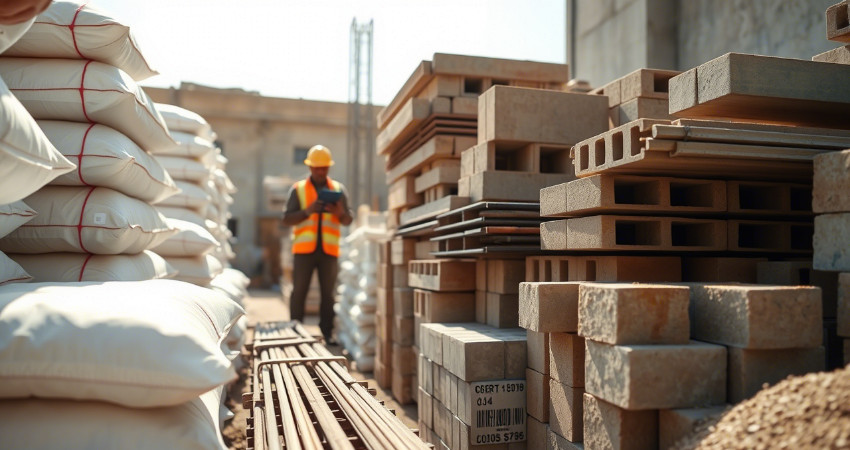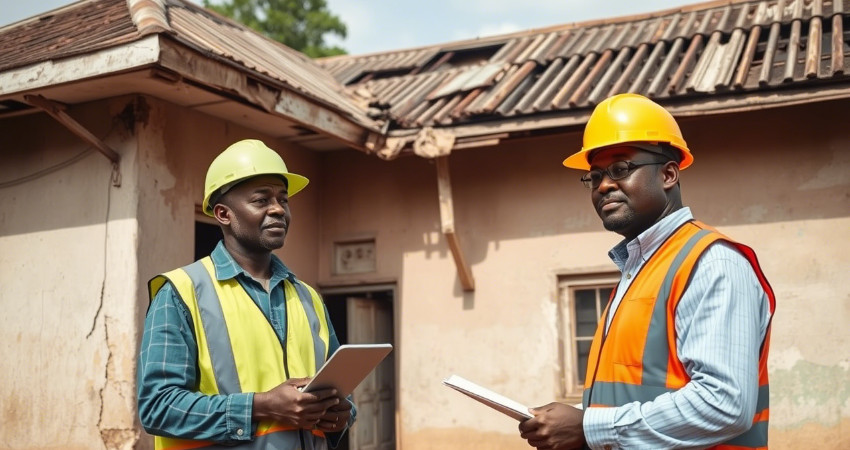
The Role of Construction Management in Project Success
Managing a construction project takes more than materials and workers. You need structure, supervision, and someone to keep everything moving in the right direction. That’s where construction management comes in.
If your goal is to finish your project on time, within budget, and without costly mistakes, you should care about how it’s managed.
What Is Construction Management?
Construction management is the process of planning, coordinating, and overseeing a building project from start to finish. It involves making sure materials arrive on time, workers follow the plan, and everything meets the required standards.
You can think of it as the glue that holds the entire process together.
Why It Matters
Many people focus on the physical structure and forget the process that gets it built.
Without proper management:
- Work stops when materials are delayed
- Costs spiral out of control
- Fundis do their own thing
- The structure ends up below standard
Good management prevents all that. It brings order, accountability, and results.
What a Construction Manager Actually Does
A good construction manager doesn’t just give instructions. They do the following:
- Coordinate workers and subcontractors
Who is doing what, and when? The manager schedules tasks and keeps people on track. - Manage materials and logistics
They make sure materials are delivered when needed and stored properly to avoid loss. - Monitor quality and compliance
They inspect work regularly to catch issues early and ensure that safety and building codes are followed. - Control costs and timelines
They track spending and flag overruns before they become problems. - Communicate with the client
They give updates, answer questions, and explain changes or delays.
Real Story: The Project That Stopped Twice
A homeowner in Kisumu hired casual workers without a site manager. Within two weeks:
- Workers argued over tasks
- Cement ran out mid-week with no order placed
- Steel bars were measured wrong and cut short
Eventually, the owner had to stop the project, hire a construction manager, and fix the mess. That decision cost an extra KES 450,000 that could have been avoided.
What You Get When You Have a Manager
Let’s look at the difference a manager makes.
Without Management:
- Materials wasted
- Work redone
- Site confusion
- Contractor blames fundis
- Delays stack up
With Management:
- Tasks assigned clearly
- Materials tracked daily
- Issues solved early
- Work inspected regularly
- Clear communication with the client
Which one do you prefer?
Who Should Handle Management?
It depends on your project. For smaller projects, your contractor may also manage the site. For larger ones, consider hiring a separate construction manager or firm.
Look for someone with:
- Experience in your type of project
- Good references from past clients
- Strong communication and planning skills
Don’t hire based on price alone. Ask about their past projects and how they solved problems.
What to Expect From a Good Construction Manager
A skilled manager will:
- Visit the site regularly (daily if needed)
- Keep a log of work, deliveries, and staff
- Share weekly updates and photos
- Approve or reject completed stages of work
- Track spending against your original budget
You can always ask for a sample report or checklist before hiring.
Why Some Projects Still Fail Even With a Manager
Hiring a manager isn’t magic. It works when:
- The manager is qualified and has authority on site
- You trust their decisions and give them access
- There’s a clear scope of work and a signed agreement
Avoid micromanaging or giving fundis conflicting instructions behind the manager’s back. Let them do their job.
How Construction Management Saves You Money
Here’s how proper management protects your budget:
- Prevents material wastage through daily tracking
- Reduces the need to redo work
- Speeds up decision-making, avoiding idle days
- Helps spot overpriced materials or hidden charges
- Keeps the project on its timeline, avoiding penalty fees
What’s the Cost?
Construction management usually adds about 5–10% to your project cost. But in most cases, it ends up saving more than that in avoided delays, errors, and mismanagement.
Think of it as a cost that protects your entire investment.
A Few Questions to Ask Yourself
- Who is making sure the right work is being done every day?
- Who is checking materials before they’re used?
- How will you know if things are going off track?
- Can your builder also manage everything alone?
If you’re not sure, you probably need someone dedicated to managing your project.
Construction management helps your building succeed long before it stands. It keeps your money, your time, and your structure safe. Every project has moving parts. A manager keeps them working in your favor.






